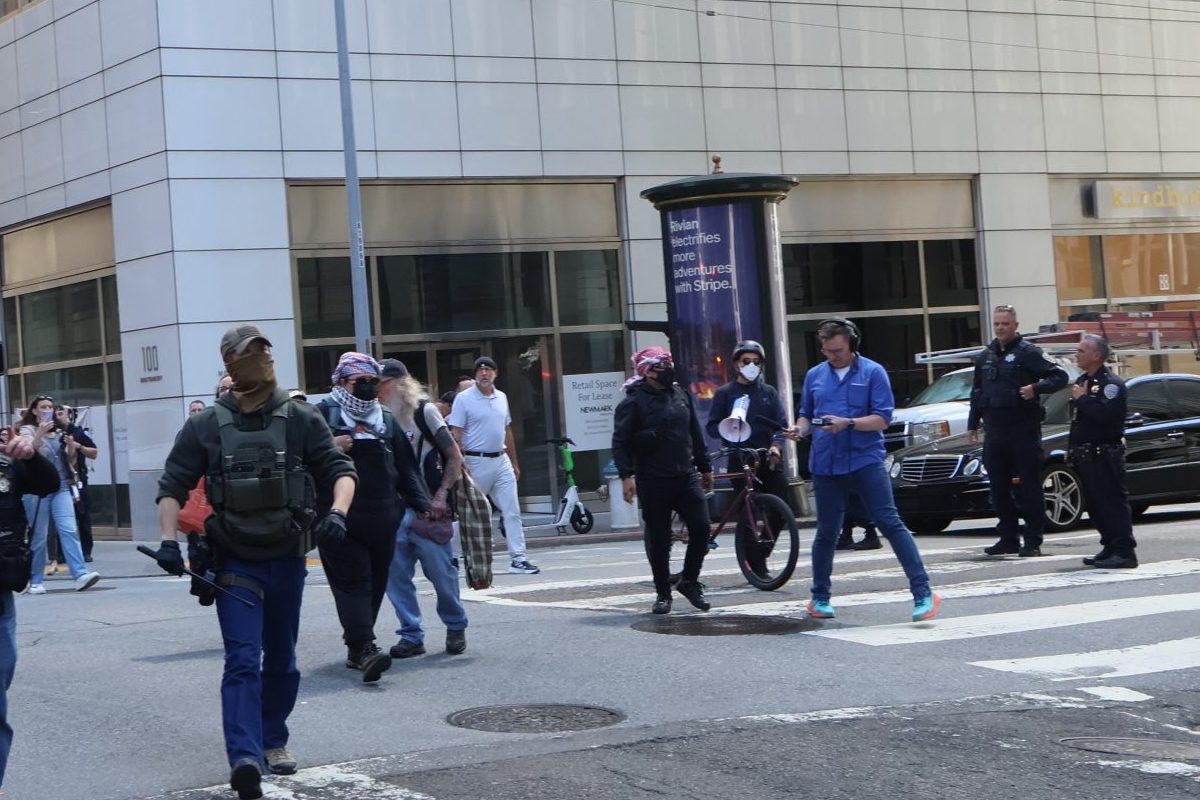A U.S. District Court judge ordered six women released from immigration detention late Friday, the latest victory in attorneys’ attempts to fight back against the routine arrests of Bay Area asylum seekers after they attend regular court hearings.
The decision is a rare case of asylum seekers being released from detention after being transferred from San Francisco to remote facilities elsewhere in the state.
More than 2,000 people have been detained by Immigration and Customs Enforcement across Northern California, Hawaii, and U.S. territories in the Pacific. Once immigrants are in detention, it is difficult for attorneys to reach them and file a habeas corpus petition before they are transferred elsewhere.
The decision late Friday was also the first large-scale release of women out of the Mesa Verde detention center, near Bakersfield, Calif., said immigration attorney Jordan Wells.
Wells, along with colleague Victoria Petty of the Lawyers’ Committee for Civil Rights of the San Francisco Bay Area, filed the habeas corpus petition on behalf of the women, arguing that the arrests and detentions violated due process rights.
Wells and Petty filed the petition on Friday on behalf of the six women. A federal judge, Jennifer L. Thurston with the U.S. District Court in the Eastern District of California, ruled on a temporary restraining order related to the petition Friday evening.
Judge Thurston ordered the women released because she determined it was likely they could prove a violation of due process.
In recent weeks, lawyers have had success in getting immigrants released from detention by filing habeas petitions, primarily before those immigrants leave San Francisco. On Friday, for instance, attorneys were able to release five of the six asylum-seekers Mission Local saw arrested in Judge Patrick O’Brien’s courtroom Thursday morning.
When asylum seekers are arrested in court, they are typically processed at an ICE field office two floors up from the immigration court at 630 Sansome St. They are held there for hours or a few days until ICE finds a bed for them in a longer-term detention facility. There are no such facilities in the Bay Area.
Generally, habeas petitions had to be filed based on a person’s current location, so an arrest sets off a rush for attorneys to figure out who was taken and file a petition before they are transferred out of 630 Sansome St.
If they are transferred, San Francisco-based lawyers have to refile the petition in the defendant’s new location.
If a lawyer cannot pinpoint the detainee or the petition is filed too late, that person slips through the cracks. Moreover, the overwhelming majority of people arrested following hearings tracked by Mission Local do not have a lawyer — rendering a rapid turnaround on a petition unlikely.
For example, one of the six women released by the Lawyers’ Committee for Civil Rights was arrested alongside two others from the same courtroom on Aug. 1.
One of those three, a 20-year-old asylum seeker from Colombia, was released on a habeas corpus petition within days because he had friends with him in court who immediately contacted Wells. The other two are still in detention in facilities in California and Louisiana.
“It reflects the reality,” Wells wrote, “that the legal services community doesn’t have the resources and real-time info to keep pace with ICE’s campaign of dragnet arrests.”
Three of the six women released late Friday were arrested following administrative hearings in their asylum cases at San Francisco immigration court, at either 630 Sansome St. or 100 Montgomery St.
Mission Local was in court and witnessed two of the arrests on July 18 and Aug. 1. Another woman, a San Francisco resident, ws arrested on June 30.
The other three women were arrested at check-ins with ICE or at their homes, according to the habeas corpus petition, filed by Wells and Petty on behalf of the six women. Two of them live outside of the San Francisco Bay Area: in Fresno and Eugene, Ore., according to the petition.
